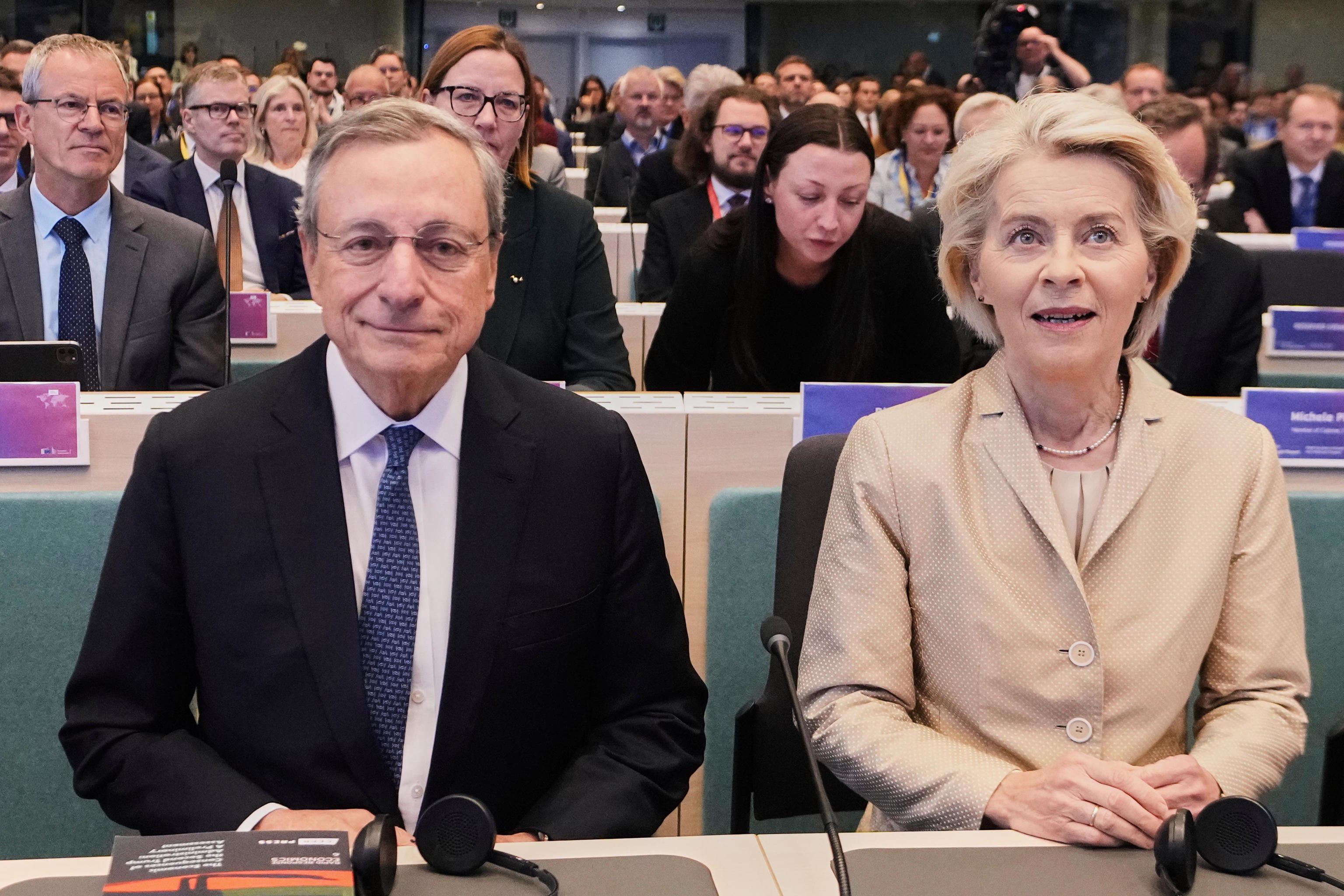One year after Draghi's report was presented, the reality is that "Europe is in a more difficult situation." This was stated yesterday by the former Vice President of the European Central Bank (ECB) in Brussels, at an event commemorating the first 12 months of the document aimed at restoring competitiveness and economic growth to the EU. However, the event was far from a celebration, not only due to the negative diagnosis by the former Italian Prime Minister but also because his reform plan still has a very low level of implementation. Alarmingly low.
"Out of 383 recommendations, only 11.2% have been fully implemented. Even considering partial progress, the EU has only achieved 31.4% of the Draghi agenda. The rest remains in progress or untouched. Brussels is busy making plans, but not fulfilling them. Two-thirds of Draghi's competitiveness agenda remains incomplete," details a recent report from the European Policy Innovation Council (EPIC), a think tank based in Brussels.
This means that almost 90% of the reforms proposed by Mario Draghi 12 months ago have not been completed yet. This data is divided between 20% that has been partially implemented, 46% that is in progress, and over 20% that have not even been addressed. An exasperating slowness, very characteristic of the European Union and to which the man considered the savior of the euro referred to unequivocally yesterday.
"Citizens and businesses," he said, "express growing frustration. They are disappointed by the EU's slowness." "They see us unable to match the pace of change elsewhere. They are ready to act, but fear that governments have not understood the seriousness of the moment," he stated.
"Excuses are often made for this slowness. We say it is simply the way the EU is built. That a complex process with many actors must be respected. Sometimes, even inertia is presented as respect for the rule of law. That is complacency. Competitors in the United States and China are much less constrained, even when acting within the law. Continuing as usual is resigning to fall behind. A different path requires new speed, scale, and intensity. It means acting together, not fragmenting efforts. It means concentrating resources where the impact is greater. And it means delivering results in months, not years," he added very accurately.
Draghi also highlighted that Europe's annual investment needs have increased by 50% in just 12 months. "The ECB now places the annual investment requirements for 2025-31 at almost 1.2 trillion euros, compared to 800 billion a year ago," he noted, adding that much of this increase is due to "commitments" in Defense.
"Fiscal space is limited. Even without this new spending, the EU's public debt will increase by 10 percentage points in the next decade, reaching 93% of GDP based on more optimistic growth assumptions than the current reality," he continued, concluding his analysis by stating: "Our growth model is fading. Vulnerabilities are increasing. And there is no clear path to finance the necessary investments. And we have been painfully reminded that inaction threatens not only our competitiveness but our own sovereignty."
